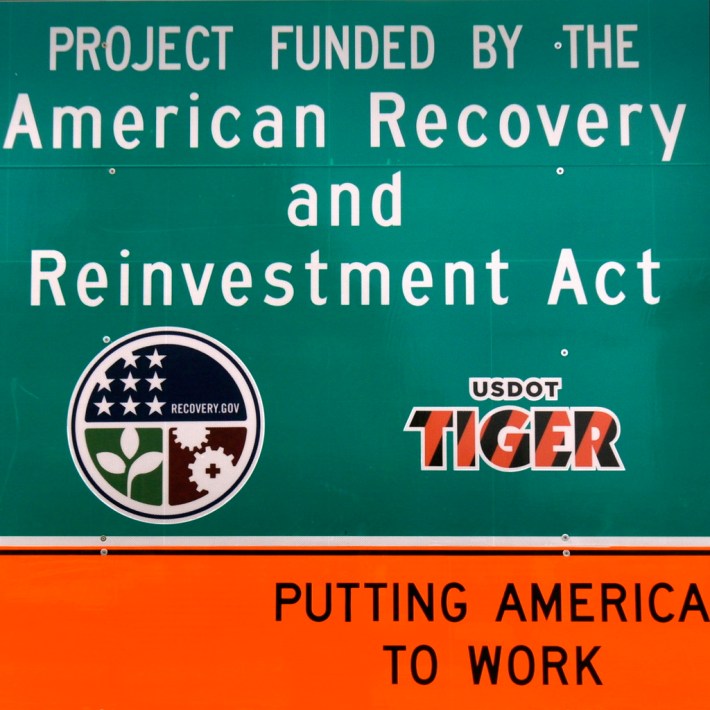At the federal level, we’re nearly flat out of transportation money and spending most of what’s left to stimulate highway construction jobs. It’s a double whammy that could present a bleak future for federally-funded transportation projects.
A new report by the Bipartisan Policy Center’s National Transportation Policy Project (NTPP) challenges the country to envision a national transportation policy based on clear-cut, objective long-term criteria. With tight federal budgets and the end of stimulus money, NTPP says this is the perfect time to revisit the direction of transportation policy and spending.
Notably, the report is authored by Martin Wachs of the RAND Corporation and Douglas Holtz-Eakin, a top economist in the President’s Council of Economic Advisers under both Bushes and a policy advisor for the 2008 McCain-Palin campaign. It's encouraging to see a Republican stalwart coming under an explicitly bipartisan umbrella to find common ground on infrastructure spending.
The report’s main recommendations are three-fold:
- Balance the selection of quick, easy “shovel ready” projects with those producing long-term economic benefits.
- Revise transportation policies to focus on economic growth and sustainable job creation.
- Stop borrowing money to finance transportation spending and short-term job creation.
The authors emphasize that just because a project is "shovel-ready" does not mean it will produce lasting economic benefits, and they reject the notion that infrastructure projects can be evaluated based on immediate job creation or "multiplier" effects.
Studies often tout the job-creating power of certain types of transportation investment -- be it roads, transit, or bike infrastructure. And the USDOT, for instance, estimates that each $1 billion spent on the federal highway system supports, on average, 30,000 jobs. The authors contend that there’s no data supporting this number and say the greatest economic benefit of transportation investment may lie in lowering the costs of business transactions, not job creation.
The authors also advocate for a "mode-neutral" approach to judging which transportation projects create long-term economic impacts -- in other words, they don't favor highways or transit. And they suggest that federal transportation dollars are currently disbursed to states without regard to the effectiveness of that spending.
The authors do criticize current policies that prioritize new highway construction over operations and maintenance, noting that maintenance typically requires more spending on labor than materials and can create jobs that benefit the local economy.






